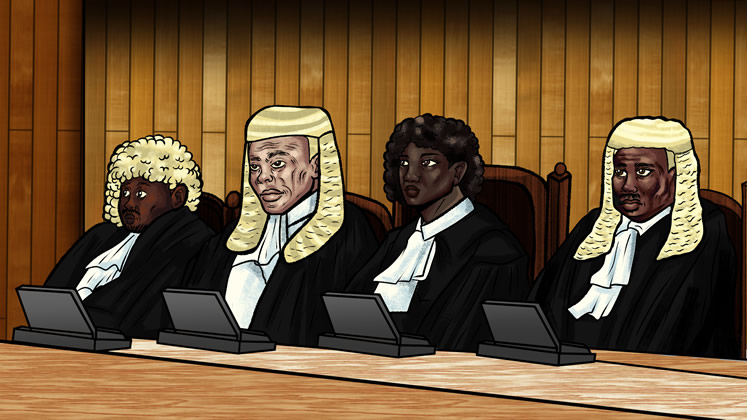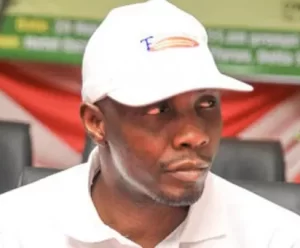The justices of the Presidential Election Petition Court (PEPC) have started the process of reading the judgment of the petitions filed by Presidential candidates of the Labour Party (LP), Peter Obi, flagbearer of the Peoples Democratic Party (PDP), Atiku Abubakar against the All Progressives Congress (APC) and its candidate in the election, Bola Ahmed Tinubu.
Chairman of the Tribunal, Justice Haruna Tsammani, set the tone for the day’s proceedings by listing the order of business. He said the judgments would take a couple of hours and asked God to guide the day’s proceedings.
In the court room are all the chieftains of the All Progressives Congress (APC), including Vice President Kashim Shettima, Chief of Staff to the President, Femi Gbajabiamila, Minister of Aviation, Festus Keyamo, APC National Chairman, Abdullahi Ganduje, and many others.
The petitioners, respondents have all announced their appearance.
All the five judges are expected to read their judgments separately, detailing the facts of the case before giving their ruling. The process may last for an upward of four hours.
READ ALSO: Tinubu not bothered about tribunal verdict, he’ll not intimidate judiciary – Presidency
The facts for determination include;
1. That INEC compromised the election by causing an artificial glitch which delayed the upload of authentic poling unit level results in real time on IRev. According to the petitioners, this led to the upload of ‘strange’ polling unit level results, among which included more than 18,000 or 11% of blurred results. The petitioners contented that since the blurred results formed part of the scores attributed to all the candidates in the election, it would be dubious to announce a winner under such circumstance. They called for a rerun on this ground.
2. The petitioners argued that Tinubu’s margin of lead was far insignificant in comparison to the quantum of cancelled votes. Recall that Tinubu was declared winner of the election after polling 8,794,726 votes. Atiku came second by polling 6,984,520 votes. The margin of lead is therefore 1,810,206. Atiku, for instance showed records of the Permanent Voters Cards (PVCs) collected in the respective polling units where elections were not held or were cancelled. Those polling units have more than 1,810,206. He also argued that since the Electoral Act and INEC’s guideline for the election anticipated such a scenario and provided for supplementary election in such a case, INEC ought not to have declared Tinubu as President.
3. The justices will also determine if it is mandatory for the winner of a presidential election to score 25% in in the Federal Capital Territory (FCT). The petitioners believe that 25% in the FCT is mandatory.
READ ALSO: PEPT: Judiciary must do the will of Nigerians, Bode George warns
4. The justices will also determine if the judgment in the U.S. that confiscated over $400,000 of drug proceeds from Tinubu was weighty enough to disqualify him from office. Tinubu’s legal team said the case in question was a civil forfeiture, not criminal. But the petitioners cited a ruling of the Chief Justice of Nigeria, Kayode Ariwoola affirming that civil and criminal forfeiture are weighty enough to disqualify one from political office. Will the justices rely on that precedent from the CJN? The justices will be expected to resolve that conundrum.
5. The justices will also determine if Tinubu’s credentials belong to a female as argued by Atiku, who tendered a subpoenaed historical record from Chicago State University showing the gender of the applicant to its institution to be female, with a different date of birth and a dual nationality – Nigerian and American.










More Stories
Wanted terrorist Bello Turji reportedly murders 12 persons in Sokoto community hours after elaborate Eid celebration
Enugu woman who allegedly machetes sister to death, attempts to kill mother, niece, says she was possessed by strange spirit
Tinubu sacks NNPCL CEO Mele Kyari, replaces him with ex-Shell MD, Ojulari